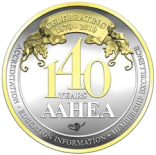All set to sail the boat on your TEFL journey?
Feeling indecisive about the reference letter?
Whether you want to work remotely or want to move overseas there are several things to arrange. When you are applying for teaching positions abroad, you certainly have a lot going on in your head. Whether you want to work remotely or want to move overseas there are several things to arrange.
Reference letter being one of the essential documents, many people puzzled up about it. Even though the necessary requirements vary from country to country, a good reference letter can certainly take you miles ahead.
Questions that might be lurking in your head about the reference letter whether you need it at all or in case you need it what are you aiming for!
We have answered the most relevant questions that you might be wondering about–
Is it mandatory to submit the reference letter?
Although, a reference letter may not be one of the requisite for teaching English jobs in abroad, it is better to keep at least 1 or 2 handy. A prospective employer may ask for the reference letter after you have been short listed for the position you have applied for. A reference letter helps the recruiter understand your academic capability as well as briefs out about your teaching performance.
Reference letters are a great way to add weightage to your application. You also need to make sure your reference letters are recent. With all these recent shifts that are happening in the educational industry, it is necessary to share reference letters that are relevant for the modern classroom. Since the international platform is a much different and wider space, your references should also reflect your proficiency in that context.
Who shall I ask for my reference letter?
A reference letter holds more potential when it comes from someone in a supervisory role. Principal, Vice principal, headteacher, or head of the department who are well informed about your teachings.
Now if you are only a beginner set to establish a TEFL career, generally, it is ideal to provide two references. The first one can be from your trainer/course facilitator, who can share your experience on the training you have received for TEFL certification, and the second one from someone who has seen you teach (or observed you in your demo teaching sessions).
For teaching English language in aboard, whether online or in-class requires TEFL methodologies to be implemented. Aspiring TEFL candidates need to think from the perspective of delivering a clear idea on those grounds. So, don't hesitate to provide some guided pointers to your referee. This will only solidify your reference letter.
Are the contact details of the Referees need to be included?
Yes, at least their full name of the referee with designation and their mail id. It demonstrates your authenticity. Make sure you have put all the correct information and that you are sharing only the professional email address.
Can the prospective recruiter contact the referee?
Yes, the recruiter absolutely has the right to do that. They might either want more details or want to clarify any unclear grounds that seem important to them. This is why it is important to always ask for permission before sharing the referee's contact details, so in case your potential employee reaches out to the referees they are comfortable in receiving the request.
How much influence does the reference letter has over selection?
Even though the selection decision is not entirely based on the frameworks of a reference letter, however, it has the potential to seal the deal if the prospective employer is satisfied with the reference. It can only be a deciding factor for non-selection if it reflects your total unsuitability for the position.
Teaching English language in abroad requires you to be sharp with TEFL methodologies as well as techniques of teaching and at the same time, it needs you to be able to handle the dynamics of different cultures that can be brought to the table.
Also, do not forget by the time recruiter asks for any reference letter, you have already been shortlisted and might as well have undergone one interview session. In case you have received a bland or bad reference you have the opportunity to express your point of view in context to that. If it concerns too much and you are unsure how much it is going to affect your job application, don’t be afraid to speak to your referees directly and ask them to forward a copy before you send it out.
Although it remains in the hand of the recruiter whether they are looking for any reference letter or not, regardless of that there is no harm in adding yours! When reference letter has the capacity to increase your possibility and if you are confident about your performance in professional training, your TEFL teaching performance, you can definitely expect your reference letter to be an amplifier.
Written By : Gargi Sen















